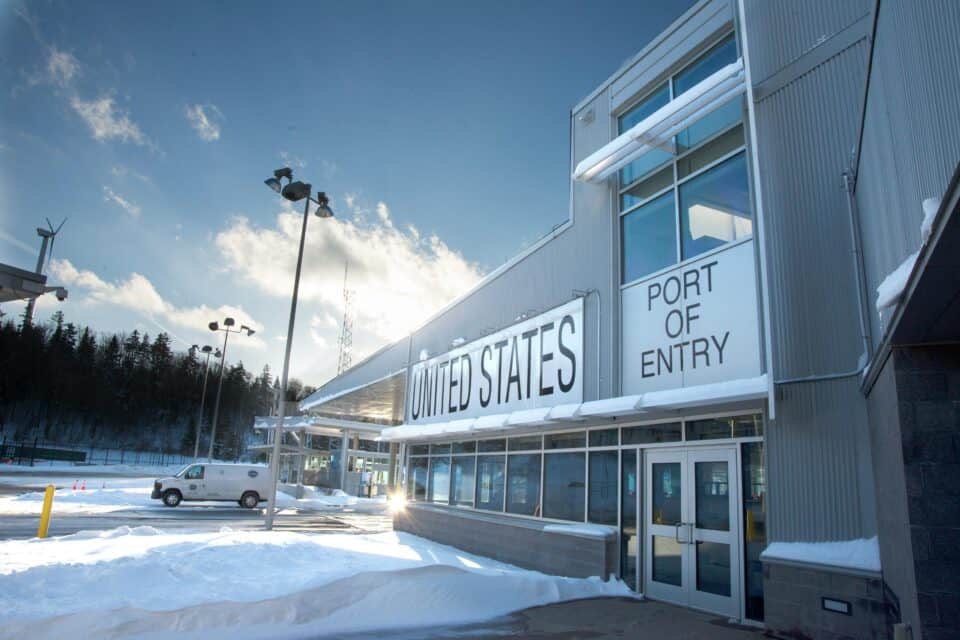Stakeholders fear that Australia’s approach to visa policy and processing is damaging the chances of genuine students being able to enrol at universities across the country.
Visa processing has been hampered by policy changes stemming from the migration strategy launched in December.
The changes have especially hit the Vocational Education and Training sector, which recorded a 0.0% approval rate for offshore student visas from India in December 2023.
A number of higher education institutions have told prospective students to withdraw applications, suggesting that the students are unlikely to receive visas from authorities under “new” measures.
A spokesperson from the Department of Home Affairs earlier this week told The PIE that advice issued by education providers about visa processing is “a matter for the relevant education provider(s)”.
However, stakeholders have said that providers are seeking “clarification” on the new student visa processing regime.
In addition to the University of Wollongong, The Sydney Morning Herald reported that La Trobe University, University of Western Sydney, Macquarie University and private college Kaplan Business School, had sent out messages cancelling enrolments or asking students to withdraw.
Additionally, Edith Cowan had sent out similar letters, the Australian Financial Review reported.
“Certain education providers are desperate to try to get back to being the lowest risk category with the home affairs department and that’s why they’re trying to defer students from coming who have the potential to be problematic,” International Education Association of Australia chief executive Phil Honeywood told SMH on February 14.
Leaders of 16 universities have warned that the changes from the new migration strategy could see them lose $310 million in revenue.
The universities – including the likes of Federation University, WSU, Wollongong, the University of Newcastle and the University of Southern Queensland – say that consequences of the new policy will “potentially [jeopardise] Australia’s brand as a preferred study destination and [present] significant financial threats to affected universities”.
“Collectively, we urgently seek your attention to these matters, adjusting the prioritisation of visa processing timelines to ensure all universities are serviced promptly and fairly.”
Two weeks before the start of the first 2024 semester, Charles Sturt University said it is waiting on visa outcomes for around 60% of its commencing international students.
It could have a negative impact of more than $20m for the university, as well as “significant flow-on economic impacts” on regional New South Wales.
“We support the government’s focus on integrity, but this must be appropriately targeted,” Charles Sturt vice-chancellor, Renée Leon, said in a new statement.
“Charles Sturt’s prospective international students are unfairly having their study plans delayed”
“Charles Sturt’s prospective international students are unfairly having their study plans delayed by the government through no fault of their own.
“We call on the government to urgently level the playing field and prioritise the visa processing of regional university students so that as many as possible may commence as intended.”
The institution’s pro vice-chancellor of International, Mike Ferguson, likened the government’s visa policy and processing approach to a “drunken sailor”.
“[The approach] is not only hurting genuine students who’ve been caught up as collateral damage but also regional communities,” he wrote on Linked In.
“Visa delays and erratic refusals are taking income away from local business and preventing much needed skills, particularly in the areas of allied health, from reaching Australia’s regional communities. This does not help with cost of living but makes it worse in our regions.”
Charles Sturt is “caught up in the cross-fire of the government’s efforts to crack down on increased net overseas migration and rorting by a small number of non-university providers”.
“This is an unsophisticated policy response which requires greater nuance… There is still opportunity for the government to do the right thing and treat all universities and genuine students fairly.”
According to SMH, Charles Sturt University is one of 15 institutions ranked as a medium risk university based on their likelihood of recruiting students for work rather than study.
Among Australia’s 41 universities, only Federation is considered a high risk university, the newspaper detailed.
All the Group of Eight universities are in the ‘tier one’ low-risk category in this new system, while the highest risk group is – along with Federation – mainly made up of private vocational education colleges, according to SMH.
Beyond higher education, other types of providers are also struggling. Visa rejection rates for ELICOS students are at an all time high.
The Independent Tertiary Education Council Australia has written the minister for Immigration, Citizenship & Multicultural Affairs, Andrew Giles, raising questions about the fairness of the current process.
The unprecedented 0.0% approval rate for offshore VET student visas from India in December 2023 “raises serious questions about the fairness and integrity of the visa assessment process, strongly suggesting that decisions are being made on a basis other than the merit of individual applications”, ITECA said.
Different nationalities are also impacted differently. One pathway provider which mainly hosts Chinese students this week told The PIE that they were seeing few rejections.
Media reports say that Chinese students are deemed a lower risk of remaining in the country after study, while students from India, Pakistan and Nepal are most impacted.
“The unequivocal message this sends… is both unfair and unbecoming”
“This situation not only undermines the aspirations of Indian nationals with the genuine intention to pursue educational opportunities in Australia, but also casts a shadow over the nation’s reputation as a welcoming and inclusive study destination,” ITECA chief executive, Troy R Williams, said.
“The unequivocal message this sends — that Indian students are somehow less desirable or unwelcome in the eyes of the Australian government — is both unfair and unbecoming of Australia’s long-standing values of diversity and inclusivity.”
Last year, Edith Cowan was one of 12 universities that temporarily stopped recruiting students from the states of Punjab and Haryana in India due to an increase in the number of visa refusals.
ITECA – which has previously voiced concern about the migration strategy – also said that the government’s actions “seem to be at odds with broader governmental efforts to strengthen economic and security relationships with India”.
Education minister Jason Clare travelled to India twice last year seeking to “strengthen” education ties, while the countries created a key trade agreement at the end of 2022.
“ITECA urgently requests a comprehensive review to pinpoint the shortcomings in the current visa processing system that has led to the blanket refusal of all offshore visa applications from Indian students seeking to enrol in skills training courses,” Williams added.
Writing in The KOALA, sector consultant Claire Field highlighted that “there are questions to be asked as to how decisions are currently being taken by the Department of Home Affairs as they transition from the Genuine Temporary Entrant test”.
Others such as sector commentator Dirk Mulder have highlighted that the next federal election is approaching and that it “would appear that migration and international students will be front and centre”.









